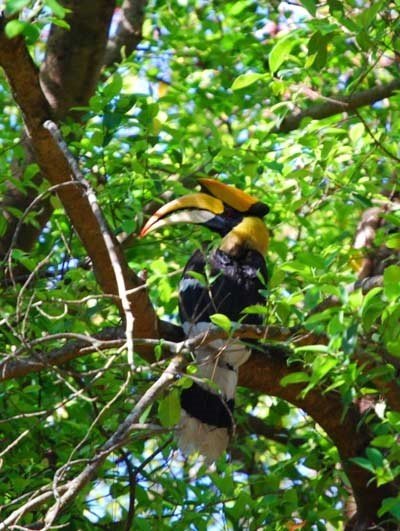Biological diversity or biodiversity refers to the variety and variability of life on earth. Biodiversity is expressed at three levels on earth; genetic diversity, species diversity and ecosystem diversity. Our direct and indirect acts and services are crucial for the sustenance of life on this planet.
Biodiversity ensure food, fuel, shelter, medicines and other resources which are vital for our survival. Most of the crops pests are controlled by a variety of other organisms, including insects, birds and fungi; which are certainly superior natural pesticides than their chemical equivalents. Over the last 2 decades The used of pesticides increased substantially to control crop, so rather than natural way , we choose harm way to control Alphonso mango fruit crops. The pesticides which are extensively used are really harmful to human beings and the environment.
Many flowering plants rely on animal species such as insects, bats and birds for pollination and seed dispersal. Biodiversity, more importantly, offers a wide range of resources and services for any location at any specific time and thus provides people with a variety of option to make it possible to switch over from one resource to another and prefer another if something is scarce, or if market demand changes.
Access to diverse species enables diversification of livelihood through, planting multiple crops and thus enabling food production throughout the year, or engaging in alternative income-generating activities. The availability of diverse resources also allows different genders, cultural or age groups to engage in and benefit from the resources.
The Biological Diversity Act (2002) mandates implementation of the Act through decentralize system where Central Government act on matters relating to the conservation of biodiversity, sustainable use of its components and equitable sharing of benefits arising out of the utilization of biological resources; and advising the State Governments in to selection of areas of biodiversity importance.
The State Biodiversity Boards (SBBs) focus on advising the State Governments, subject to an guidelines issued by the Central Government The SSBs also regulate, by granting of approvals or otherwise requests for commercial utilization or bio-survey and bio-utilization of any biological resource by Indians. The local level Biodiversity Management Committees (BMCs) are responsible for promoting conservation, sustainable use and documentation of biological diversity including preservation of habitats, conservation of land races folk varieties and cultivars, domesticated stocks and breeds of animals and micro-organisms and chronicling of knowledge relating to biological diversity.
The National Biodiversity Authority with its headquarters in Chennai, Tamil Nadu, delivers its mandate through a structure that comprises of the Authority, Secretariat, SBBs, BMCs and Expert Committees.
The board together develops goals and Targets across Alphonso growing rural konkan belt-
Goal1-Eliminate extreme poverty and Hunger
Our Contribution- Hire and Recruit people from rural distressed areas during alphonso mango harvesting season.
Goal2- Achieve basic primary education
Our Contribution- Our 1% sales contribution will move towards primary education
Goal3- Promote gender equality and Empower woman
Our Contribution- www.alphonsomangoes.online always motivates and inspire rural workforce for planning and packaging. 70% Workforce are Females currently in our organisation.
Goal4- Reduce child mortality
Goal5- Improve Maternal Health
Goal 6- Combat HIV/AIDS, Maleriya
Goal7- Ensure environment sustainability
Our Contribution- To used less chemicals and more organic fertilizer from flowering alphonso to Fruit Alphonso
Goal8- Develop a Global partnership for development



